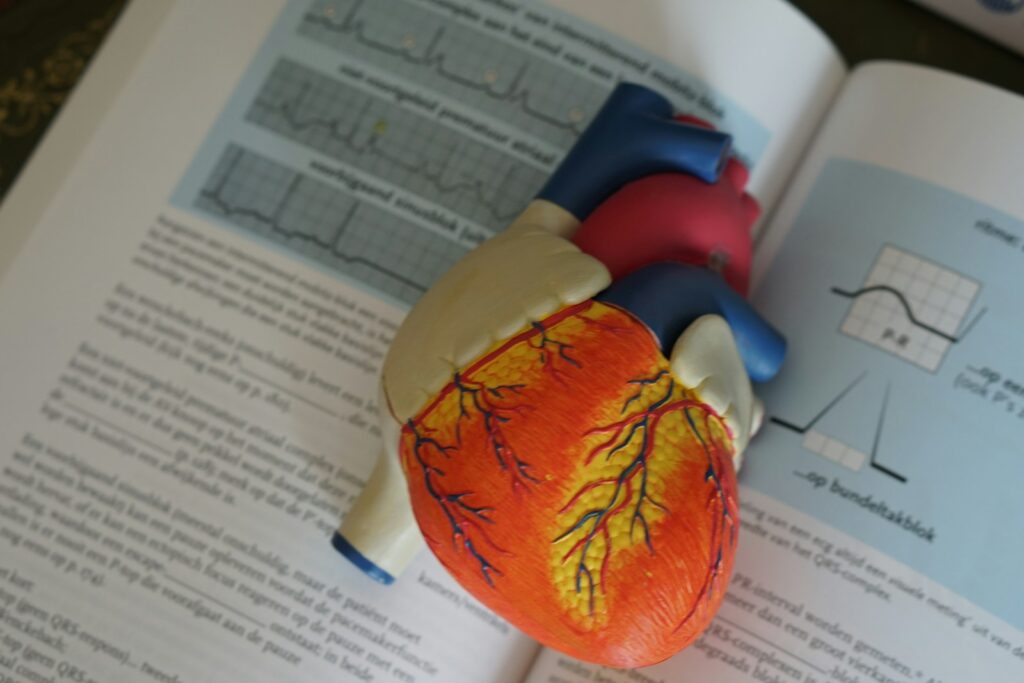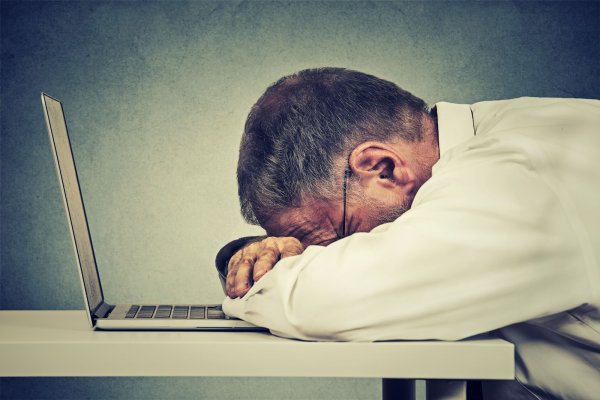
Did you sleep well last night? If you worked late, binge watched a favorite TV show, or recently had a baby, then probably not. Many of us struggle to get enough sleep or good quality sleep. Parents of young children can particularly relate. When you’re navigating trauma and recovery, you can struggle with poor sleep quality, too. However, getting good sleep and maintaining a sleep hygiene checklist are critical relapse prevention strategies for staying sober as you work through the phases of addiction recovery.
At The Blanchard Institute, we take a comprehensive approach to treating addiction and co-occurring mental health disorders at our treatment centers in Charlotte and Cornelius, North Carolina. That means we understand how physical conditions affect mental health and advocate for healthy self-care. After all, physical health often suffers during addiction, so part of recovering well involves rebuilding your physical health in order to reclaim your mental health from addiction’s grip.
In considering how physical conditions affect mental health, sleep is very much at the center of it all. As humans, we need sleep to survive. And when it comes to successfully navigating the phases of addiction recovery, sleeping well can easily get overlooked when you have so many other priorities on your mind. However, sleep is really important when you consider what can happen when you don’t get enough sleep during recovery. Let’s delve into some of the major routine flaws that flat-out refuse to let you recover properly, starting with the direct impact poor sleep has on your well-being.
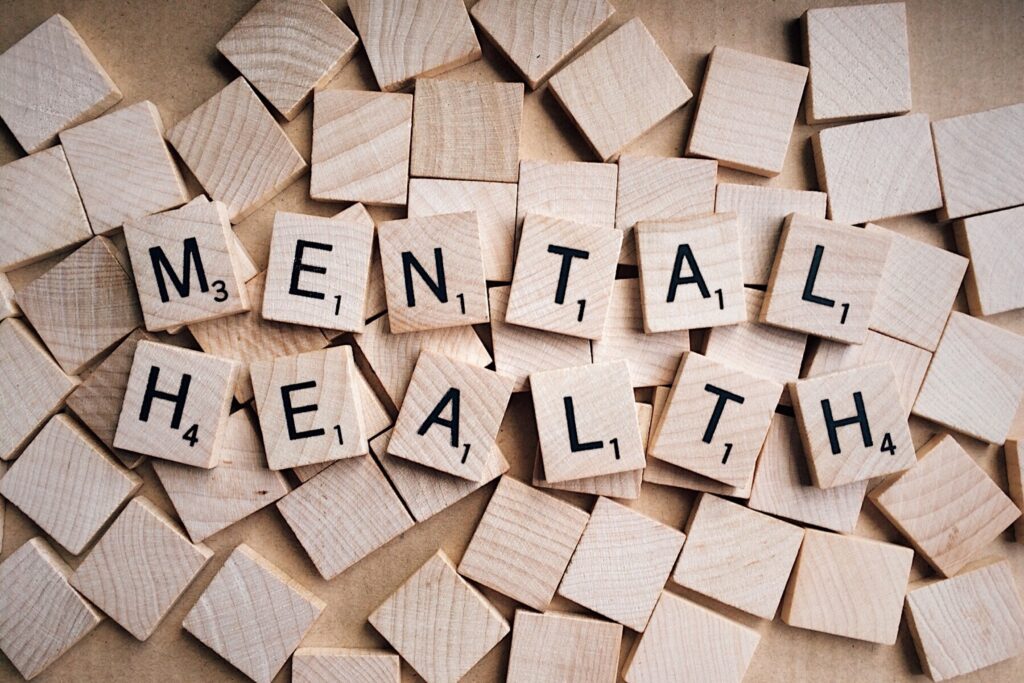
1. **Poor Mental Health – A Direct Consequence of Neglected Sleep**
One of the most insidious flaws that can derail your recovery journey is the direct negative impact of poor sleep on your mental health. It’s a fundamental truth that our minds and bodies are deeply interconnected, and when sleep is compromised, mental well-being often pays the price. For individuals navigating the complexities of addiction recovery, this connection is even more critical, as mental resilience is paramount for sustained sobriety.
According to Columbia University, studies on sleep deprivation have clearly shown that even otherwise healthy people can experience increased anxiety and distress levels after periods of poor sleep. This isn’t just a minor inconvenience; it’s a significant impediment to stability. Imagine the heightened challenge this presents for someone already in a vulnerable state of recovery, where managing anxiety and distress is a daily endeavor.
Furthermore, poor sleep can dramatically increase an individual’s susceptibility to developing mental health disorders such as anxiety and depression. If you’re already grappling with co-occurring mental health conditions alongside your addiction, insufficient sleep acts as an accelerant, making existing symptoms worse. This creates a vicious cycle where poor sleep exacerbates mental health issues, which in turn can make achieving restful sleep even more difficult.
Addressing this routine flaw means recognizing sleep as a cornerstone of mental health, not merely about feeling tired. Prioritizing consistent, quality rest lays a crucial foundation for improved mood, reduced anxiety, and a stronger mental state, empowering individuals to face the challenges of recovery with greater fortitude. Ignoring sleep-induced mental strain is akin to leaving a critical vulnerability exposed in your recovery defense.
Read more about: Beyond the Pixels: An In-Depth Look at the Grueling Hours and Enduring Stress Shaping Game Development Today
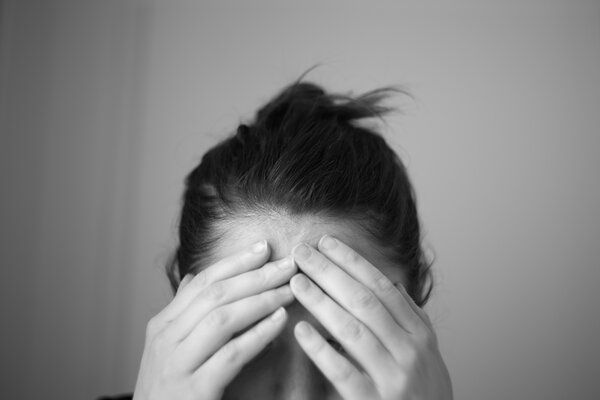
2. **Emotional Regulation Struggles – When Sleep Deprivation Fuels Instability**
Beyond the general decline in mental health, another major routine flaw stemming from poor sleep is the profound difficulty it creates in regulating emotions. The journey of recovery is inherently emotional, filled with ups and downs, triggers, and the necessity to process complex feelings without resorting to old coping mechanisms. When sleep is lacking, this vital capacity for emotional control becomes significantly impaired, making the path to sobriety more arduous.
Columbia University further explains that poor sleep has been found to increase negative emotional responses to stressors, while simultaneously decreasing positive ones. This means that minor setbacks or everyday frustrations, which might normally be manageable, can feel overwhelming. The brain, deprived of its restorative processes, struggles to sort through the day’s events and recalibrate its emotional centers, leading to heightened reactivity.
Consequently, when you are struggling with sleep, your ability to cope with even minor negative feelings encountered on your recovery journey is severely diminished. This can manifest as increased irritability, heightened anger, or exaggerated sadness, making interactions more challenging and inner peace elusive. It’s a flaw that can erode one’s sense of stability and confidence in their recovery path, making consistent sobriety a far greater challenge.
Recognizing emotional dysregulation as a direct consequence of poor sleep compels us to integrate sleep improvement as a core strategy for emotional stability. By fostering better sleep, we empower the brain to perform its essential emotional maintenance, leading to a more balanced and adaptive emotional landscape, which is indispensable for sustainable recovery and a more fulfilling life.

3. **Increased Relapse Risk – The Perilous Link to Sleep Deprivation**
Perhaps the most critical routine flaw arising from neglected sleep, especially within the context of addiction recovery, is the significantly increased risk of relapse. For anyone committed to maintaining sobriety, this is a stark warning that the consequences of sleep deprivation extend far beyond feeling tired; they directly undermine the cognitive and emotional defenses crucial for resisting old habits and triggers.
The American Academy of Sleep Medicine (AASM) highlights that sleep deprivation has been demonstrably shown to hinder cognitive function and judgment. This is not a subtle effect; it means that the very mental faculties required to make sound decisions, resist impulses, and navigate challenging situations are compromised. In recovery, where every decision can be critical, impaired judgment is a dangerous vulnerability that must be addressed.
When cognitive function is impaired, it becomes much harder for individuals in recovery to fight against powerful impulses like drinking or using drugs. The weakened ability to think clearly, assess consequences, and exercise self-control creates a fertile ground for cravings to take root and lead to impulsive actions. This is precisely why fatigue, often a symptom of poor sleep, can be a direct precursor to relapse, making the individual more susceptible to old patterns.
Therefore, prioritizing quality sleep is not merely about comfort; it is a fundamental relapse prevention strategy. By ensuring adequate rest, individuals strengthen their cognitive armor, sharpen their judgment, and enhance their capacity to resist impulses, ultimately safeguarding their hard-won sobriety. Overlooking this flaw is to gamble with the very foundation of recovery, making consistent, restorative sleep an absolute necessity.

4. **Insomnia in Early Recovery – A Widespread and Challenging Obstacle**
A common and particularly challenging routine flaw that confronts many individuals early in their recovery journey is insomnia. This isn’t just about an occasional restless night; it’s a persistent difficulty falling asleep, staying asleep, or experiencing non-restorative sleep, often leading to significant distress and daytime impairment. In the context of addiction, insomnia takes on a unique and formidable role as the body adjusts to life without substances.
While anxiety and insomnia are often interconnected in general, recovery and insomnia are even more profoundly intertwined when overcoming substance abuse. The body and brain, previously accustomed to the presence of substances, undergo a significant readjustment period during abstinence, which can profoundly alter natural sleep rhythms. This physiological shift often manifests as acute insomnia, making restful nights a distant memory for many.
Insomnia can be a typical challenge in recovery, as abstaining from drugs or alcohol can fundamentally alter sleep rhythms that had been artificially regulated or suppressed. The nervous system, once reliant on external depressants or stimulants, struggles to find its new equilibrium. This internal recalibration can leave individuals feeling wired, restless, or simply unable to initiate or maintain sleep, contributing to overwhelming fatigue.
The pervasive exhaustion and mental distress caused by chronic insomnia can lead many individuals to a desperate search for relief. Sadly, this desperation, in turn, can tragically increase the temptation to relapse, as substances may have previously been used as a means to induce sleep, however unhealthy and unsustainable that sleep might have been. It underscores the critical need for effective non-pharmacological strategies.
Read more about: Al Pacino at 83: Beyond the Godfather – Unveiling a Cinematic Titan’s Unfolding Legacy, Personal Truths, and Unyielding Dedication to the Craft

5. **Nightmares in Recovery – The Disturbing Echoes of Trauma and Withdrawal**
Another significant routine flaw that can severely disrupt sleep and impede recovery is the occurrence of nightmares, often intense and recurring. For many, the journey through recovery is deeply intertwined with confronting past trauma, and the brain’s way of processing this, especially during the vulnerable state of early sobriety, can manifest as disturbing dreams that make restful sleep elusive and create a profound sense of unease.
Nightmare disorder can be a real challenge when you’re working through trauma and recovery simultaneously. These are not just bad dreams; they are recurring, vivid, or disturbing dreams that cause significant distress and profoundly impact sleep quality. The fear of going to sleep, knowing what terrors might await, can become a routine flaw in itself, leading to sleep avoidance and further deprivation, further complicating the recovery process.
The context provides a crucial insight: when you stop using certain drugs such as alcohol and cocaine, you may experience nightmares as a withdrawal symptom. The body and brain are rebalancing, and this physiological adjustment can trigger intense, vivid dreams as the system clears itself of toxins and adapts to a new chemical landscape. Moreover, co-occurring mental health disorders like PTSD can also significantly contribute to these recurring nightmares, embedding them as a persistent challenge.

6. **Irregular Sleep Cycles – The Disruption of the Body’s Natural Rhythm**
A foundational routine flaw that prevents proper recovery is the disruption of regular sleep cycles, often referred to as a disordered circadian rhythm. Our bodies possess an internal ‘clock’ that dictates when we feel alert during the day and sleepy at night. When this natural rhythm is thrown off balance, particularly due to substance use and the subsequent recovery process, it profoundly impacts sleep quality and overall functioning, creating a pervasive sense of fatigue.
When sober, individuals typically have regular sleep cycles, characterized by predictable shifts between non-rapid eye movement (NREM) sleep and rapid-eye movement (REM) sleep. This regularity is crucial for getting consistent, restorative rest. However, as Psychiatric Clinics of North America points out, drugs or alcohol can drastically alter these natural cycles, impacting the quality and progression of NREM and REM stages, thus disrupting the body’s natural restorative processes.
The problem is that these irregular sleep cycles can continue even once an individual has stopped using substances. The body’s natural clock may take time to recalibrate, leading to persistent disruptions in sleep-wake patterns. This manifests as difficulty maintaining a consistent sleep schedule, feeling sleepy at inappropriate times, and struggling with alertness during the day, making sustained engagement in recovery activities a significant hurdle.
Consequently, an irregular sleep cycle can severely interfere with daily functioning in recovery. Impaired alertness during the day makes it challenging to engage fully in therapy, work, or other essential recovery activities. Excessive daytime sleepiness can also lead to a lack of motivation, increasing feelings of lethargy and potentially contributing to a sense of hopelessness, all of which are detrimental to sustained sobriety and overall well-being.
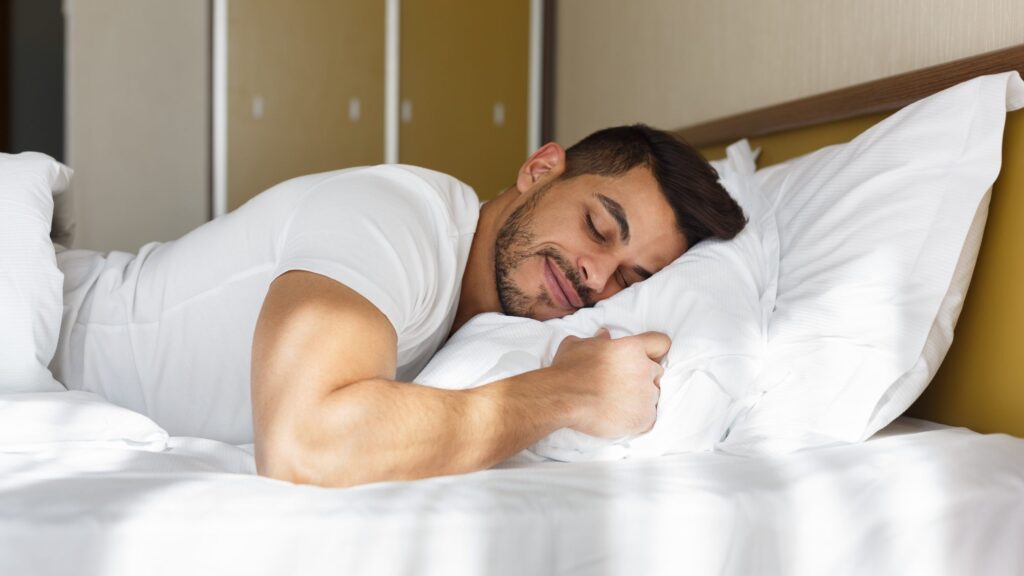
7. **Unmanaged Other Health Conditions – The Hidden Saboteurs of Sleep**
One often overlooked, yet critically important, routine flaw that can sabotage proper recovery sleep is the presence of unmanaged underlying health conditions. It’s easy to attribute all sleep problems in recovery to the addiction itself or its aftermath. However, a range of other physical and mental health issues can independently, or synergistically, disrupt sleep, creating significant barriers to restorative rest and making genuine recovery harder to achieve.
The context explicitly states that sometimes conditions such as depression, sleep apnea, or restless legs syndrome (RLS) cause sleep problems. These are not merely minor ailments; they are serious health issues that demand attention. Sleep apnea, for instance, a breathing condition where breathing stops and starts repeatedly during sleep, leads to fragmented, non-restorative rest, and is even more common in people with Alzheimer’s disease.
The advice from Mayo Clinic Staff for caregivers of individuals with Alzheimer’s — “Treat other health conditions” — is universally applicable to anyone struggling with sleep in recovery. It underscores the importance of a holistic assessment. If an underlying medical or psychological condition is present and left untreated, it will continue to undermine any efforts to improve sleep hygiene or address addiction-specific sleep disturbances.
Therefore, a critical step in overcoming sleep flaws is to proactively seek medical evaluation for any persistent sleep problems that don’t readily respond to basic sleep hygiene improvements. Consulting a healthcare professional to identify and treat conditions like depression, sleep apnea, or RLS can remove significant obstacles, allowing other recovery-focused sleep strategies to become far more effective and paving the way for truly restorative sleep.

8. **Inconsistent Sleep Schedule – Undermining Your Body’s Internal Clock**
One of the most fundamental yet frequently overlooked routine flaws that can sabotage proper recovery is the failure to maintain a consistent sleep schedule. Our bodies thrive on predictability, guided by an intricate internal system known as the circadian rhythm, which dictates our natural sleep-wake patterns. When this rhythm is constantly shifted due to erratic bedtimes and wake-up times, especially during the vulnerable period of addiction recovery, it creates a pervasive disruption that profoundly impacts sleep quality and overall physical and mental well-being.
Setting up a routine where you “try to eat, wake up and go to bed at the same times each day” is not merely a suggestion; it’s a cornerstone of healthy sleep hygiene. This consistency helps to regulate your body’s internal clock, sending clear signals about when it’s time to be alert and when it’s time to wind down. In recovery, this predictability is even more vital as your system works to re-establish natural rhythms that may have been severely disrupted by substance use, which often involved irregular patterns of activity and rest.
Without a consistent schedule, your body’s natural sleep-wake drive becomes confused, making it harder to fall asleep when desired and leading to fragmented or non-restorative sleep. This means that even if you spend enough hours in bed, the quality of that sleep can be severely compromised. Such inconsistency can exacerbate fatigue, irritability, and stress, which are potent triggers that can weaken your resolve and increase vulnerability to relapse.
Therefore, making “consistency key” in your sleep routine is an actionable strategy for bolstering your recovery. By committing to going to bed and waking up around the same time every day, even on weekends, you actively work to regulate your body’s internal clock. This simple yet powerful habit creates a stable foundation, allowing your body and mind to anticipate and prepare for sleep, thereby improving its quality and contributing significantly to sustained sobriety and mental clarity.

9. **Unoptimized Sleep Environment – The Hidden Obstacles in Your Sanctuary**
Your bedroom, intended as a sanctuary for rest, can ironically become a major routine flaw if its environment is not optimized for sleep, particularly during recovery. The physical surroundings where you sleep play a crucial role in signaling to your brain that it’s time to wind down and enter a state of repose. A poorly designed or uncomfortable sleep space can inadvertently heighten alertness, anxiety, and discomfort, making it incredibly challenging to achieve the restorative sleep essential for healing.
To foster better sleep, it’s paramount to “optimize your sleep environment.” This involves ensuring your bedroom is dark, quiet, and cool. Darkness is critical because light, especially artificial light, can suppress the production of melatonin, the hormone that signals sleep. Quietness helps prevent disruptions, while a cool temperature (around 60-67°F or 15-19°C) is generally considered ideal for promoting sleep. These environmental controls are not mere luxuries; they are physiological necessities for healthy sleep architecture.
Low lighting and increased shadows, for instance, can be particularly problematic. While the context mentions this in relation to sundowning in people with dementia, the principle applies broadly: confusing or unsettling visual cues in a dimly lit environment can cause anxiety and restlessness. For individuals in recovery, who might already be grappling with heightened stress or emotional sensitivity, such an environment can easily become a trigger for wakefulness rather than relaxation, preventing a peaceful transition into sleep.
Cultivating a peaceful mood in the evening, as recommended, extends beyond mere aesthetics. It’s about consciously creating a space that promotes tranquility. This means removing stimuli that hinder sleep, such as televisions or phones in the bedroom, and instead introducing elements like soothing music or gentle reading. By taking deliberate steps to control your sleep environment, you transform your bedroom into a powerful aid for recovery, signaling deep rest and reducing potential external factors that disrupt your journey.

10. **Excessive Screen Time Before Bed – The Blue Light Barrier to Rest**
In our hyper-connected world, one of the most pervasive routine flaws disrupting sleep, particularly for those in recovery, is the habit of engaging in excessive screen time late at night. Whether it’s scrolling through social media, binge-watching a show, or working on a laptop, the blue light emitted from these devices directly interferes with your body’s natural sleep processes, making it significantly harder to fall asleep and achieve quality rest. This digital distraction creates a formidable barrier to the restorative sleep needed for mental and physical healing.
The National Sleep Foundation clearly states that “blue light exposure within two hours of bedtime can disrupt your sleep cycle.” This isn’t just about general alertness; blue light actively suppresses the production of melatonin, the hormone crucial for signaling to your brain that it’s time to sleep. For someone in recovery, whose sleep patterns may already be delicate due to physiological adjustments or mental health challenges, this disruption can be especially detrimental, delaying sleep onset and impacting the depth of rest.
Beyond the physiological impact, engaging with screens late at night often stimulates the mind, keeping it active and engaged when it should be winding down. The constant influx of information, emotional content, or even the stress of work-related tasks can create a mental state antithetical to sleep. Instead of preparing for rest, your brain remains in an alert, processing mode, making the transition to sleep a frustrating struggle. This constant mental engagement effectively works against the relaxation needed for a healthy bedtime.
To address this critical routine flaw, it is essential to “quit screen time late at night.” This means actively turning off TVs, computers, smartphones, and tablets for at least an hour, or ideally a few hours, before bed. Replacing these digital habits with calming activities like reading a physical book, taking a warm bath, or practicing gentle stretching helps signal to your body and mind that it’s time to prepare for sleep. This conscious detachment from screens empowers you to reclaim your natural sleep rhythms and fortify your recovery journey.
11. **Mismanaging Stimulant and Heavy Food Intake – Fueling Wakefulness, Not Recovery**
A significant routine flaw that many individuals in recovery overlook is the mismanagement of their stimulant and food intake, particularly in the hours leading up to bedtime. Substances like caffeine, nicotine, and alcohol, alongside heavy or spicy meals, are potent disruptors of sleep. While often ingrained as daily habits, their consumption at inappropriate times can actively counteract efforts to achieve restful sleep, making it nearly impossible for the body and mind to properly recover from the day’s stressors and the ongoing challenges of sobriety.
The instruction to “limit stimulants” is crucial. “Alcohol, caffeine and nicotine can make it harder to sleep.” While caffeine, commonly found in coffee, tea, and soda, is known for its stimulating effects, its half-life means it can remain in your system for many hours, interfering with sleep long after you’ve consumed it. Nicotine, another powerful stimulant, similarly keeps the brain alert. Alcohol, despite initially inducing drowsiness, ultimately fragments sleep in the latter half of the night, preventing deep, restorative stages. Avoiding these substances “especially at night” is a non-negotiable step for improving sleep quality.
Furthermore, “avoid caffeine and certain foods before bedtime” is vital advice. Beyond stimulants, what you eat also significantly impacts sleep. “It’s best not to eat fatty, spicy, fried, or other heavy foods late at night, as they’re harder to digest and may disrupt sleep.” The digestive process requires energy and can raise core body temperature, both of which are counterproductive to initiating sleep. Indigestion, heartburn, or general discomfort from a heavy meal can keep you awake and contribute to fragmented sleep, diminishing your body’s ability to heal and restore itself.
Therefore, “watching what you consume” is a practical and powerful sleep hygiene strategy. This means avoiding caffeine for at least 6-8 hours before bed, steering clear of nicotine entirely, and limiting alcohol intake, especially in the evening. It also entails ensuring your evening meal is light and easily digestible, allowing your body ample time to process food before you attempt to sleep. By making these mindful dietary choices, you remove significant chemical and physiological obstacles to restorative sleep, thereby supporting a stronger and more stable recovery.
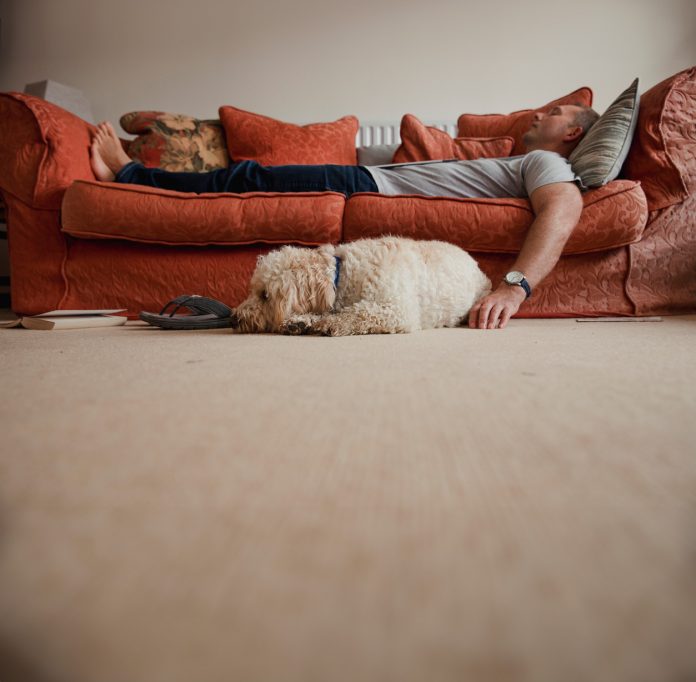
12. **Lack of Regular Physical Activity (or improper timing) – The Sedentary Sleep Saboteur**
While often praised for its mental and physical health benefits, a lack of regular physical activity during the day, or engaging in intense exercise too close to bedtime, represents another critical routine flaw that can sabotage proper sleep in recovery. Our bodies are designed for movement, and when deprived of it, the energy expenditure needed to facilitate deep sleep is reduced. Conversely, mistiming activity can create an unwanted stimulatory effect, keeping you wired when you should be winding down.
The advice to “move more during the day” is rooted in solid physiological principles. “Walks and other physical activities can help improve sleep at night.” Regular moderate-intensity exercise, such as brisk walking, jogging, or swimming, helps reduce stress and anxiety, improves mood, and can significantly deepen sleep quality. It aids in expending built-up energy and regulates body temperature, all contributing to a more robust sleep drive. For individuals in recovery, physical activity also serves as a healthy coping mechanism, diverting attention from cravings and improving overall well-being.
However, the timing of your workout is just as crucial as the activity itself. The context explicitly states, “it’s better to exercise in the morning or early afternoon at the latest, as a nighttime exercise routine has been found to interfere with quality sleep for some.” Intense physical activity within 2-3 hours of bedtime can raise your core body temperature and stimulate your nervous system, making it harder to relax and fall asleep. This is a common oversight that can turn a healthy habit into a sleep disruptor.
Integrating “exercise earlier in the day” as part of your routine is an actionable way to address this flaw. Gentle activities like yoga or stretching can be beneficial in the evening as part of a relaxing bedtime ritual, but strenuous workouts are best reserved for earlier hours. By ensuring you get at least 30 minutes of moderate-intensity exercise most days of the week, appropriately timed, you leverage physical activity as a powerful natural sleep aid, reinforcing your body’s ability to achieve the restorative rest essential for sustained recovery.

13. **Using the Bed for Non-Sleep Activities – Diluting Your Sleep Signal**
A subtle yet significant routine flaw, especially for those struggling with sleep in recovery, is the habit of using the bed for activities other than sleep and intimacy. When your brain consistently associates your bed or bedroom with activities like working, eating, watching TV, or worrying, it weakens the powerful mental cue that the bed should exclusively evoke sleep. This dilution of the “sleep signal” can make it incredibly difficult to fall asleep quickly and efficiently when you actually lie down with the intention to rest.
This concept is a cornerstone of “Stimulus Control Instructions,” which aim to “re-establish the bed/bedroom as a strong cue for sleep, rather than frustration or wakefulness.” The principle is straightforward: your bed should primarily be a place for rest. If you’re constantly reading, scrolling, or working while in bed, your brain learns to associate that space with alertness and activity, making the transition to sleep much more challenging. This creates a psychological barrier that undermines even the best intentions for sleep.
The “Bed for Sleep Only” rule is a powerful, actionable strategy to combat this flaw. It involves reinforcing the mental association between your bed and sleep by consciously avoiding working, eating, or watching TV in bed. If you can’t fall asleep within about 15-20 minutes, the recommendation is to leave the bedroom and return only when sleepy again. This retraining helps to strengthen the link between your bed and the desired state of sleep, minimizing the time spent awake and frustrated in bed.
By strictly adhering to the “bed for sleep only” principle, you are actively conditioning your mind to view your sleep space as a dedicated zone for rest. This behavioral adjustment helps to consolidate sleep and reduce the time spent in bed feeling anxious or awake, making your sleep efforts far more effective. In recovery, where mental discipline is key, establishing this strong environmental cue for sleep provides a much-needed foundation for consistent, quality rest.
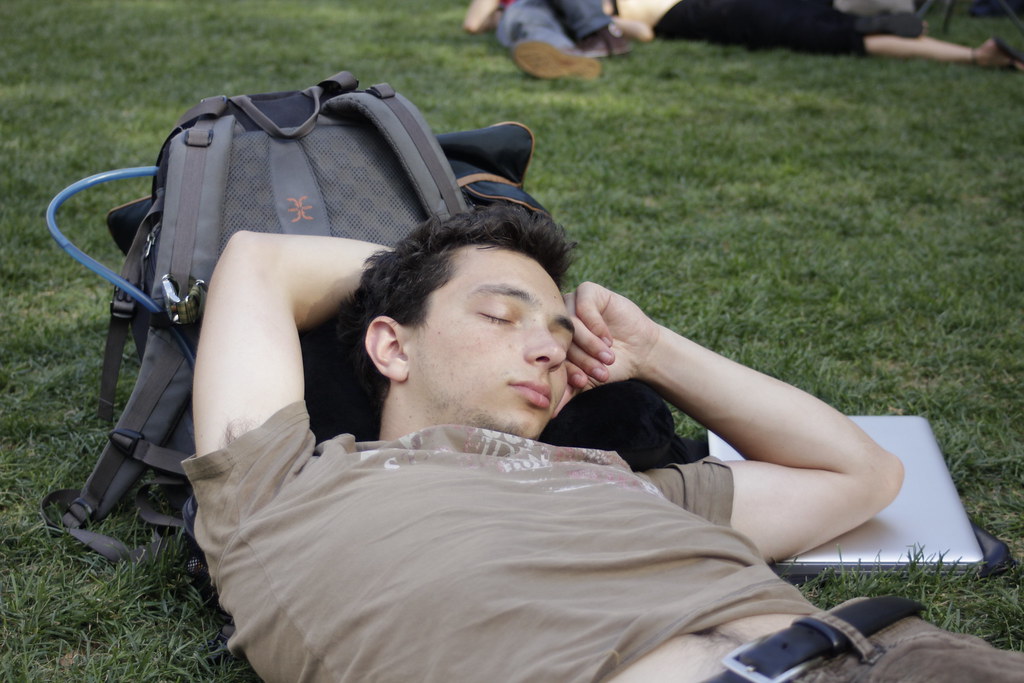
14. **Neglecting Relaxation and Mindfulness Techniques – A Mind Racing Against Rest**
In the challenging journey of recovery, one pervasive routine flaw is the neglect of incorporating relaxation and mindfulness techniques into the daily routine, especially before bedtime. For individuals grappling with past trauma, anxiety, or the general stressors of sobriety, a racing mind can become an insurmountable barrier to sleep. Without intentional strategies to calm the nervous system and quiet mental chatter, the brain remains in a state of heightened arousal, making restful sleep elusive and exacerbating emotional and physical fatigue.
“To combat a wandering, stressed mind in recovery, practicing mindfulness techniques before you go to bed can help relax your mind and prepare you for sleep.” These techniques are not just about temporary calm; they empower you to manage cognitive patterns that perpetuate insomnia. Practices like meditation or focusing on your body’s sensations help anchor you in the present moment, preventing your mind from dwelling on anxieties about the past or worries about the future. This mental grounding is crucial for reducing the “rumination about the past or future” that often accompanies sleep difficulties.
Relaxation training, including techniques such as “deep breathing exercises” and “progressive muscle relaxation (PMR),” are highly effective tools. Slow, deep diaphragmatic breathing directly activates the body’s relaxation response, counteracting the stress and anxiety that often keep individuals awake. PMR involves systematically tensing and then releasing different muscle groups, fostering greater awareness of physical tension and actively promoting its release, which is essential for physical readiness for sleep.
Incorporating a “relaxing bedtime ritual” that includes these techniques is a critical step in overcoming this routine flaw. Engaging in calming activities for 30-60 minutes before bed – be it listening to soothing music, practicing guided imagery, or engaging in mindfulness meditation – helps create a buffer zone between the day’s demands and the peaceful state required for sleep. By proactively managing your cognitive and emotional state, you transform a racing mind into a tranquil one, paving the way for the restorative sleep that is indispensable for sustained recovery.
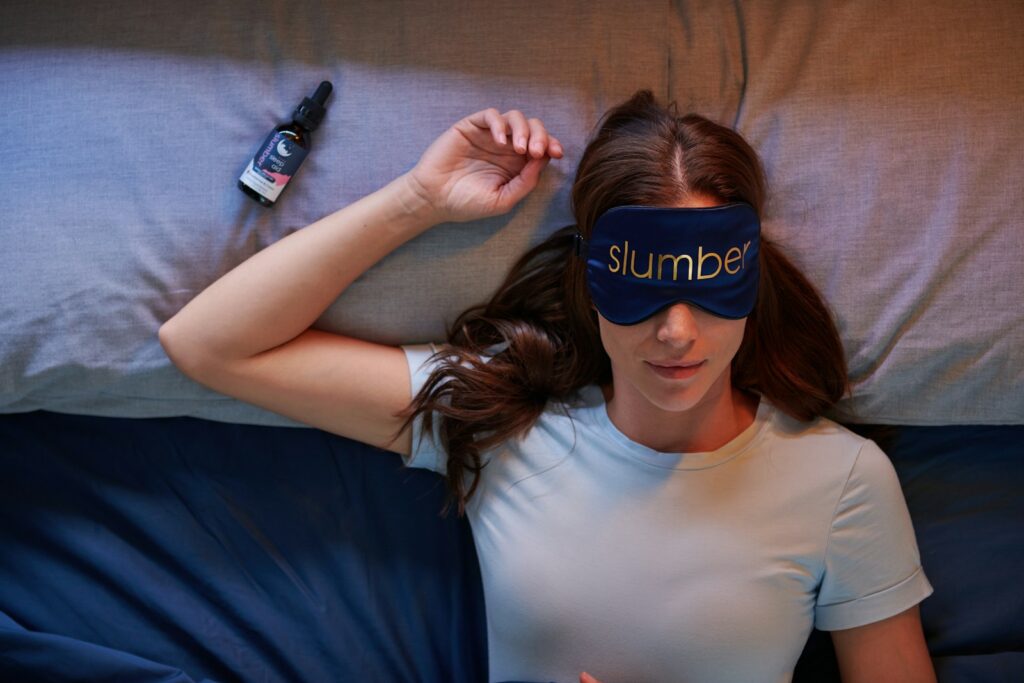
15. **Unaddressed Negative Beliefs About Sleep – The Self-Fulfilling Prophecy of Insomnia**
Perhaps one of the most insidious and deeply ingrained routine flaws that can prevent proper recovery sleep lies in unaddressed negative beliefs and worries about sleep itself. These cognitive patterns, often developed over long periods of sleep deprivation or during the intense anxiety of early recovery, can become a self-fulfilling prophecy, creating a cycle where fear of not sleeping ironically makes sleep more difficult. This cognitive distortion, if left unchallenged, acts as a formidable internal barrier, sabotaging even the most diligent efforts at improving sleep hygiene.
“Cognitive Restructuring” is a core component of Cognitive Behavioral Therapy for Insomnia (CBT-I), specifically designed to address this flaw. It “involves identifying, challenging, and changing negative or unhelpful beliefs and worries about sleep.” Thoughts such as “If I don’t get 8 hours of sleep, I won’t be able to function tomorrow” or “I’m just a bad sleeper” are common examples. These rigid, often catastrophic, interpretations of sleep can generate intense performance anxiety around bedtime, activating the stress response rather than the relaxation response.
These negative beliefs are not merely passing thoughts; they become ingrained “cognitive patterns” that actively perpetuate insomnia. When an individual believes they are incapable of sleeping well, they enter bedtime with a heightened sense of dread and scrutiny, paradoxically making it harder to relax and drift off. This mental vigilance prevents the natural, effortless surrender required for sleep, turning the act of going to bed into a source of frustration and fear.
The path to overcoming this flaw involves replacing these “more realistic and adaptive thoughts.” By consciously challenging and reframing negative sleep-related cognitions, individuals can reduce sleep-related anxiety and foster a more positive and accepting attitude towards sleep. This cognitive shift, when combined with other behavioral strategies like those in CBT-I, empowers individuals to break free from the self-fulfilling prophecy of insomnia, allowing for a more natural and restorative sleep experience, which is paramount for a successful and lasting recovery.
**Beyond the Flaws: Empowering Your Sleep, Empowering Your Recovery**
We’ve journeyed through 15 significant routine flaws that can severely impede proper recovery, revealing how deeply intertwined sleep is with our mental, emotional, and physical well-being on the path to sobriety. From physiological disruptions caused by substance withdrawal to environmental culprits and entrenched cognitive patterns, each flaw presents a unique challenge. However, the good news is that each also offers a clear, actionable pathway to improvement. The Blanchard Institute’s comprehensive approach, including services like our Recovery Management program and telehealth options, emphasizes empowering individuals with practical tools and evidence-based strategies, such as CBT-I, to regain control over their sleep. By meticulously addressing these routine imperfections—establishing consistent schedules, optimizing sleep environments, moderating stimulants, embracing physical activity, practicing stimulus control, utilizing relaxation techniques, and reframing negative sleep beliefs—you are not just improving your sleep; you are actively fortifying the very foundations of your recovery. Remember, quality sleep is not a luxury, but a fundamental pillar of lasting sobriety, enabling you to build a healthier, more connected, and truly fulfilled life, one restful night at a time. Embrace these insights, take charge of your sleep narrative, and confidently navigate your journey towards sustained wellness.




